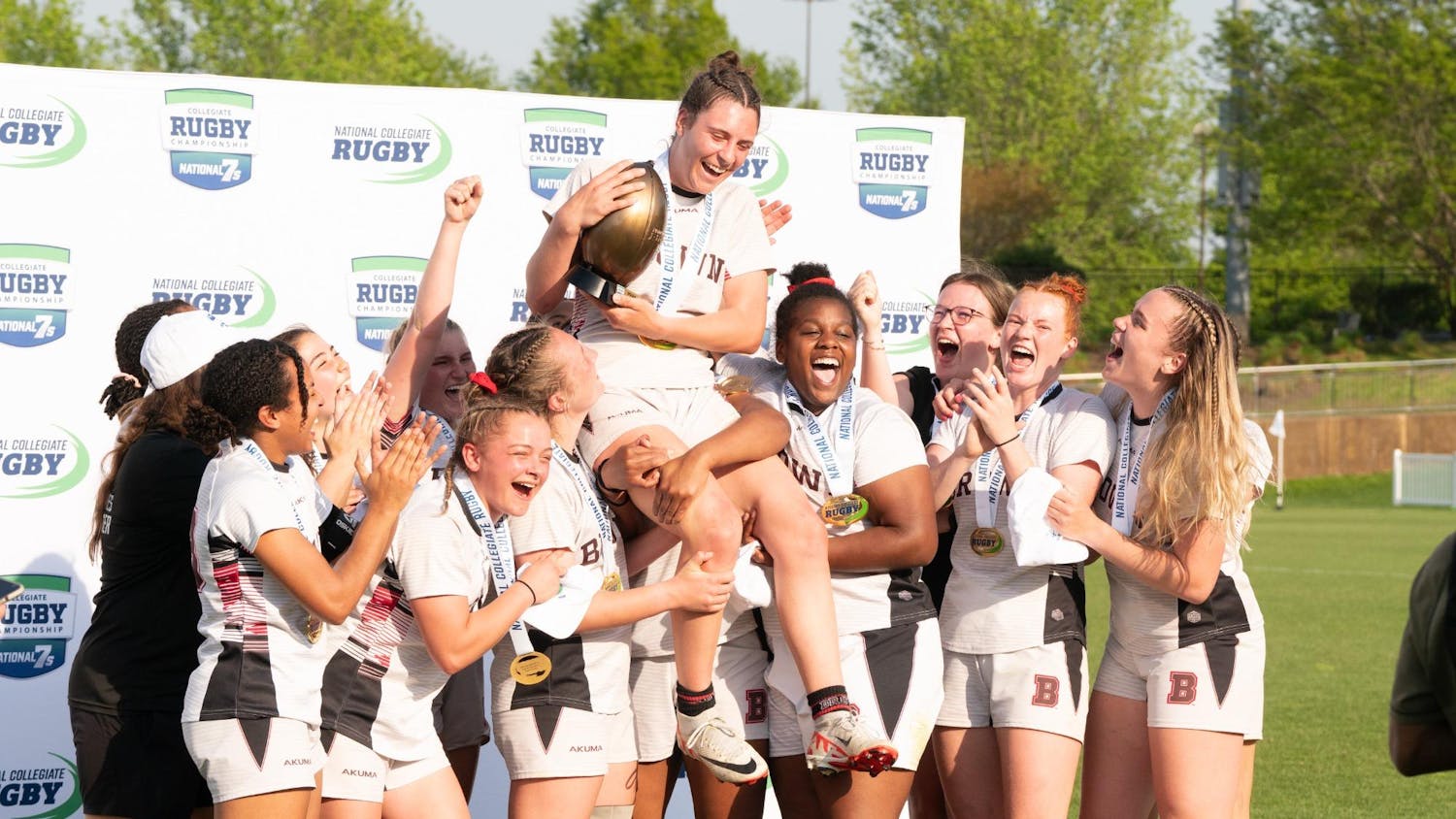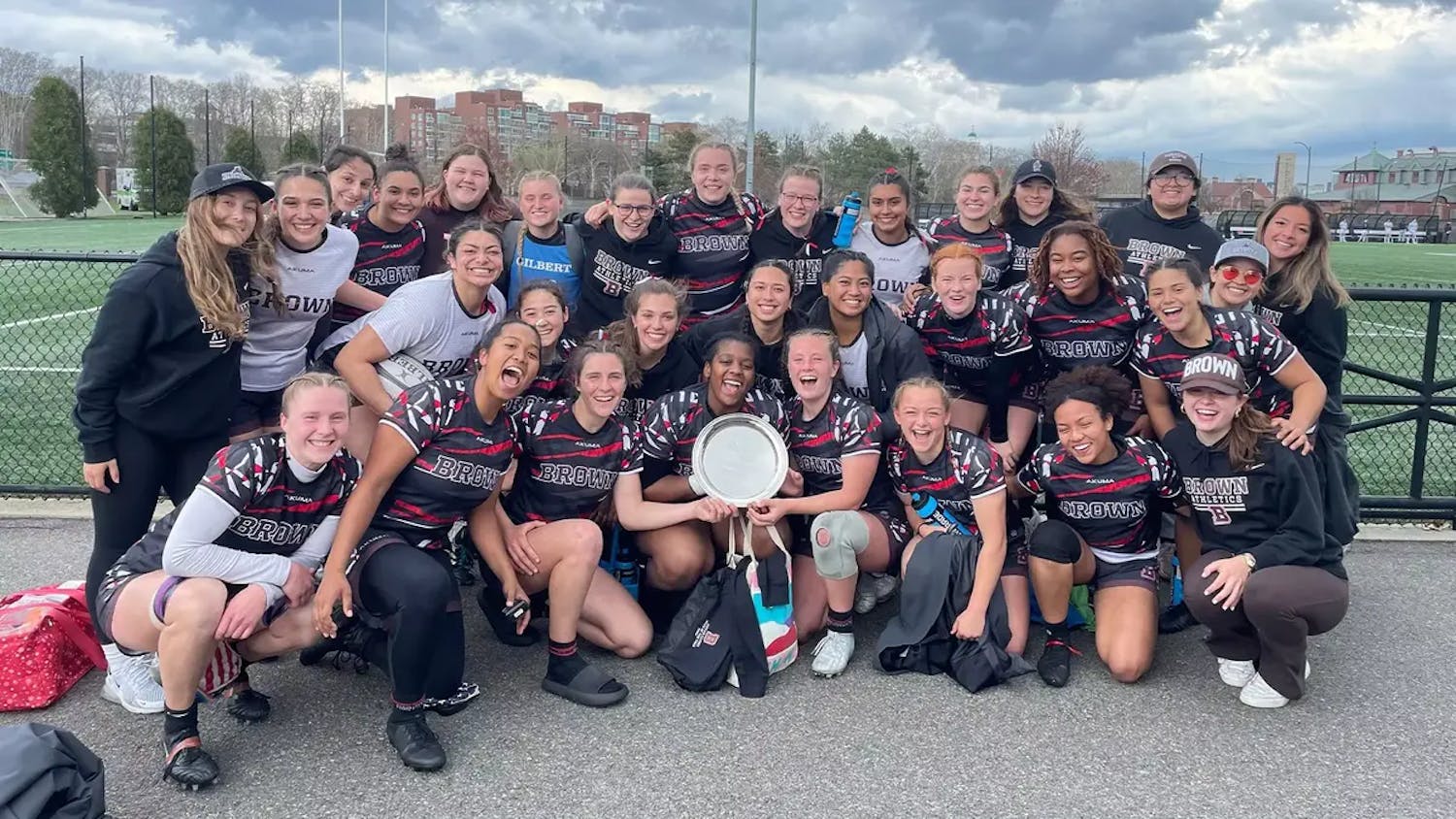Correction appended.
The men's soccer team was ranked No. 22 in the country at the end of the regular season and finished in the top 16 in the postseason tournament. But with a regular-season record of 11-3-3 (3-3-1 Ivy League), the Bears had no guarantee they would be invited to the 48-team NCAA tournament at the end of the year.
The conference held end-of-season tournaments for men's and women's lacrosse for the first time last year, but it currently has no plans to introduce championship tournaments in other team sports, according to Scottie Rodgers, associate director for communications at the Ivy League.
"Traditionally, the Ivy League has not had any conference tournaments in any team sports," Rodgers said. "It's been a long-standing tradition of the Ivy League that the Ivy League champion should be determined through regular-season play."
Individual sports, such as cross country and swimming, have had postseason tournaments to allow all the teams within the conference to compete within the same arena at the same time, he said. And baseball and softball are exceptions to the overall team sport trend of deciding the champion within the regular season. Because these teams play within divisions, division winners play in a three-game championship series at the end of the season to determine the Ivy League champion, who receives an automatic bid to the NCAA tournament.
A set number of schools in the country are selected for the NCAA championships through at-large bids based on the Ratings Percentage Index, a mathematical ranking system determined by the record of a team and the competitiveness of its schedule. Automatic bids are given to champions of conference tournaments or the winners of the regular season in their leagues.
Three years ago, lacrosse coaches from Ivy League institutions proposed the implementation of a conference tournament after examining their situation and determining what would be beneficial to the sport, Rodgers said.
Because the Ivy League is one of the strongest conferences in both men's and women's lacrosse, and its teams are highly ranked in terms of the RPI, league coaches concluded that playing games against Ivy League teams in a postseason tournament would help the profiles of those trying to qualify for the NCAA championships, Rodgers said. The proposal went through the league's legislative process and was approved with a two-year testing period, during which the league would monitor the tournament's success. The tournament determines the recipient of the automatic bid to the NCAA tournament, but not the Ivy League champion, he said.
There are no talks about introducing conference tournaments for other team sports — at least, not until the lacrosse tournaments are thoroughly evaluated by the league's athletic directors, he added.
Men's soccer goalie and co-captain Paul Grandstrand '11 said that even if there were a proposal to create a tournament, he would most likely not support it.
"I don't think there's a big push for it," he said. "Being in the Ivy League, we like being different, and it's been like this forever. I don't see it changing."
Each regular season game currently has a "dual meaning," he said, because teams are playing not only for the conference title, based currently on wins and losses, but also for a place in the NCAA tournament. If there were an end-of-season tournament, the scenario would change, and the team that won the tournament would receive an automatic bid to the national championships. While consistency throughout the season is important within the current system, a conference tournament would favor teams that perform better at the end of the season, he said.
Members of the team have occasionally mentioned the lack of a postseason competition, Grandstrand said, but he added that he does not consider it an issue.
"Being a senior, it's been like this for four years," he said. "There's no real need to change it."
Head Coach Pat Laughlin agreed.
"I think one of the great things about the Ivy League is that every regular season game counts so much," he said. "It makes every game very difficult and also very important. And I think if you have a tournament at the end of the year, you'll lose some of that."
But defender Ryan McDuff '13 said he would welcome a tournament.
"It's tough in the current system where you just play regular season, because once you drop or lose or tie one game, you're kind of chasing for the rest of the season," he said.
McDuff said he understands that the logistics behind organizing a tournament might be complicated since there is only a short period of time between the end of the Ivy League season and the start of the NCAA tournament. Allowing four teams to compete, instead of eight, in a competition consisting of two semifinals and a final could be a solution, he said.
The Ivy League would also have to make sure that an end-of-season tournament would not overshadow the rest of the season, McDuff said.
"The competitiveness may drop off if teams know that there is an Ivy League tournament to be played at the end of the year," he said.
But McDuff said he believes that such a tournament might allow an additional Ivy League team to qualify for the NCAA championships. If a lower-ranked team were to have an unexpected win at the conference tournament, in which its competitors already have at-large bids, the Ivy League would be able to send an additional team to the national championships, he said. This season, four Ivy League programs — Brown, Dartmouth, Penn and Princeton — qualified for the 48-team NCAA tournament.
"If there's an opportunity to play more games especially against talented teams, then you would like to be given that opportunity," he said.
Due to an editing error, an earlier version of this article incorrectly stated that the Ivy League soccer winner does not automatically receive an NCAA tournament bid. The Herald regrets the error.




